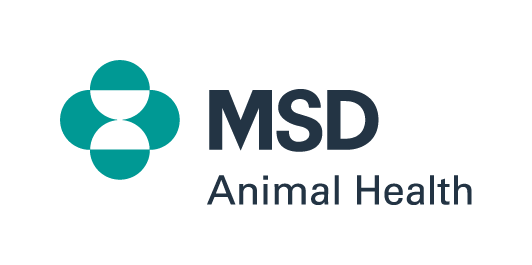How to protect against Leishmanios
Milton Keynes, UK, April 30, 2019 – With two recent cases of Leishmanios in untravelled dogs striking the UK, Claire Gotto, veterinary adviser for MSD Animal Health gives her expert advice on how pet owners can protect their pets against Leishmanios, when they travel with their dogs to high risk areas to mainland Europe.
How can I protect my dog against leishmanios?
“Leishmanios is transmitted by sandflies which affects both humans and dogs and in Southern Europe. An important method of minimising the disease risk to pets is reducing their exposure to sandflies by using a veterinary recommended sandfly repellent collars or spot-ons. This can be purchased at your local veterinary clinic, pet shops or online.
“Sandflies are most active between March and October and they feed between dusk and dawn, so keeping pets indoors during those peak times can help minimise the risk. This can be quite difficult in the summer months, when the heat of the day should be avoided. I would suggest taking your dogs on longer walks during the morning and late afternoon instead.
“In addition to this, vaccination can be used to reduce disease risk in dogs. Pet owners should consult their vets, before travelling, to discuss.
“It is really important to carry out these steps to reduce the risk of Leishmanios entering the UK, particularly as humans can become infected with this disease. Each year over 65,000 people worldwide die due to Leishmanios.
What are the signs of infection with Leishmanios?
“It can take up to seven years for the signs of Leishmanios infection to become apparent. Signs of infection include wasting, enlarged lymph nodes, lethargy, lack of appetite, fever, vomiting and skin lesions.
What other diseases are a risk in Europe?
“It’s not only Leishmanios that we need to be aware of when travelling abroad with our pets. There are multiple diseases, found throughout Europe, which dogs are currently not protected against by the current travel legislation. This is something we should be aware of when travelling with our pets and it means there is so much more that we can do to help keep our pets safe in addition to the legal requirements.
“Throughout Europe, the brown dog tick – also known as the kennel tick – is commonly found and it spreads the disease Ehrlichia. Common signs of infection with Ehrlichia include fever, difficulty breathing, lack of appetite, nose bleeds and seizures. The ticks that transmit the disease like warmer climates but there’s a risk of infestation in homes or kennels if they’re brought back to the UK.
“Babesia is another disease found throughout Europe which is spread by infected ticks. Symptoms in dogs includes fever, weakness, lack of appetite and pale gums due to the anaemia it causes.
“Pet owners might think there is little risk of their pets picking up ticks when travelling, however, findings from MSD Animal Health’s ‘Big Tick Project’ – a study carried out to understand the prevalence of ticks and tick-borne diseases in the UK – showed that a worrying 76 per cent of dogs in the study travelling abroad returned with ticks. Therefore, adequate tick protection is essential for travelling pets.”
“Other parasites include heart worms, spread by mosquitoes, that infect not only dogs but also cats. Signs of infection include exercise intolerance and breathing difficulties due to heart failure which can be fatal. To reduce the chance of dogs being bitten by mosquitoes a veterinary recommended repellent collar should be applied.”
About MSD Animal Health
For more than a century, MSD, a leading global biopharmaceutical company, has been inventing for life, bringing forward medicines and vaccines for many of the world’s most challenging diseases. MSD Animal Health, a division of Merck & Co., Inc., Kenilworth, N.J., USA, is the global animal health business unit of MSD. Through its commitment to the Science of Healthier Animals®, MSD Animal Health offers veterinarians, farmers, pet owners and governments one of the widest ranges of veterinary pharmaceuticals, vaccines and health management solutions and services as well as an extensive suite of digitally connected identification, traceability and monitoring products. MSD Animal Health is dedicated to preserving and improving the health, well-being and performance of animals and the people who care for them. It invests extensively in dynamic and comprehensive R&D resources and a modern, global supply chain. MSD Animal Health is present in more than 50 countries, while its products are available in some 150 markets. For more information, visit www.msd-animal-health.com/ or connect with us on LinkedIn and Twitter.
